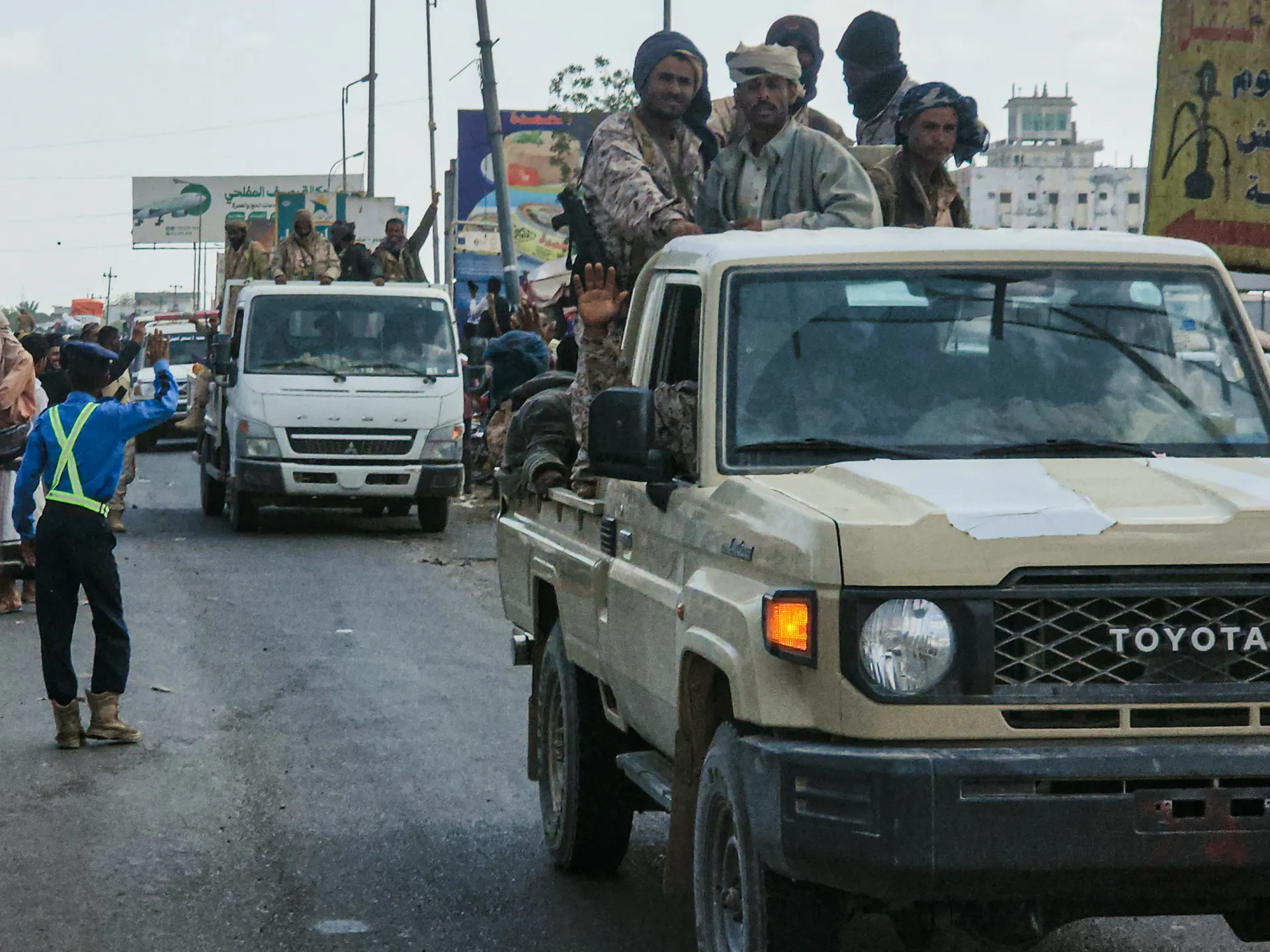Is southern Yemen’s next phase being decided on the ground? | Politics
It is no longer possible to interpret the Yemeni landscape solely through the lens of politics. The developments witnessed in the southern Yemeni governorates under government control in recent months clearly indicate that security and military affairs have become the decisive factor in determining the course of power on the ground. Any governmental or political arrangements will be unsustainable unless the issue of security control and the unification of military command are resolved.
Nor can the escalating Saudi–Emirati rift between two allies who have militarily, politically and economically shaped southern Yemen in recent years be overlooked, given its direct impact on the balance of power and stability.
Over the past years, a complex security structure has taken shape across the southern governorates, comprising official units and others that emerged during the war. Some of these units are linked to state institutions, while others were established with Emirati support, such as the Southern Transitional Council’s forces, which number in the tens of thousands, or through local arrangements shaped by the circumstances of the conflict.
Although recent months have seen moves to restructure this landscape following the defeat of the Southern Transitional Council (STC), which declared its dissolution in Hadhramaut and al-Mahra on January 3, 2026, security control remains uneven from one governorate to another. Furthermore, the STC’s security and military formations have not disappeared entirely; some have been redeployed, while the fate of others remains unknown.
In Aden, the temporary capital, security agencies operate within a complex structure. Some units formerly affiliated with the STC have seen their personnel and weapons disappear, while others have been renamed or redeployed. However, longstanding networks of influence remain, and the transfer of leadership or redeployment of camps reflects attempts to rebalance power rather than a definitive resolution of the situation.
The same applies, to varying degrees, to Lahij, Abyan, Dhale, Shabwah and Hadhramaut, where the state’s ability to assert effective authority varies, as does the level of coordination between official security forces and the formations that emerged during the war.
The most sensitive issue at this stage is the integration of military and security formations into the Ministries of Defence and Interior. The state seeks to end parallel security authority, but the process faces complex challenges, including differing sources of funding for some units, varying political loyalties, fears among some commanders of losing local influence, and considerations related to the composition of these forces. As a result, integration appears gradual, relying more on redeployment and restructuring than on decisive measures that could risk triggering confrontation.
The government now based in Aden, southern Yemen, finds itself facing a delicate equation: it must impose its security authority without plunging the country into renewed internal conflict.
The transition from multiple armed groups to a state monopoly on the use of force requires political consensus, regional support and international backing. Any hasty move could reignite internal clashes, particularly given existing political and regional sensitivities, as well as fears that the Saudi–Emirati dispute could once again trigger confrontation on the ground.
For this reason, government efforts are focused first on establishing a stable security environment.
This trajectory cannot be understood without considering the regional dimension. Saudi Arabia views Yemen as a direct strategic depth for its national security and seeks the emergence of a stable state along its southern border.
The dispute between Riyadh and Abu Dhabi, particularly after Yemen requested the withdrawal of Emirati forces from its territory, has become a significant factor shaping the course of the crisis, especially amid Saudi accusations that Abu Dhabi continues to support the STC and consolidate its influence on the ground.
Yemen today is part of a broader regional landscape, intertwined with Red Sea dynamics and maritime routes, competition for influence in the Horn of Africa, and tensions stretching from Sudan to Somalia to the Gulf. For this reason, international actors — particularly the United States — are keen to keep the situation in Yemen under control, fearing that a security collapse could trigger intra-Gulf conflict, threaten international shipping, create space for a new wave of armed groups, or allow the Houthis to exploit the situation.
In the next phase, the government is likely to continue efforts to consolidate security control in Aden and other southern governorates, including Hadhramaut, which borders Saudi Arabia, while gradually integrating military units and maintaining political balances to prevent renewed conflict.
The success of these efforts will determine whether the country is moving towards gradual stability or another round of reshaping power centres. Given this reality, the central question remains: who truly possesses the ability to impose security on the ground, particularly as some actors continue to push the Southern Transitional Council towards escalation that could reignite the conflict?
The views expressed in this article are the author’s own and do not necessarily reflect Al Jazeera’s editorial stance.
